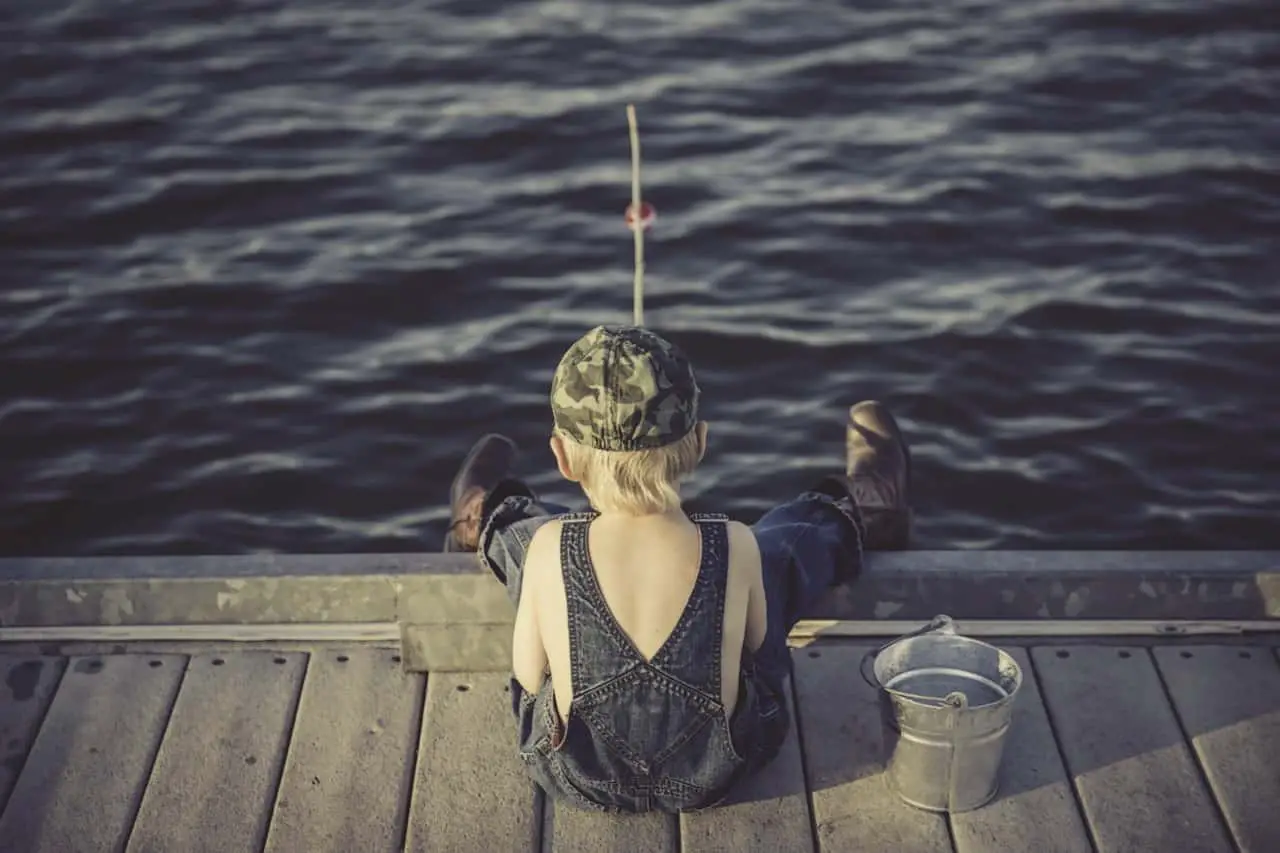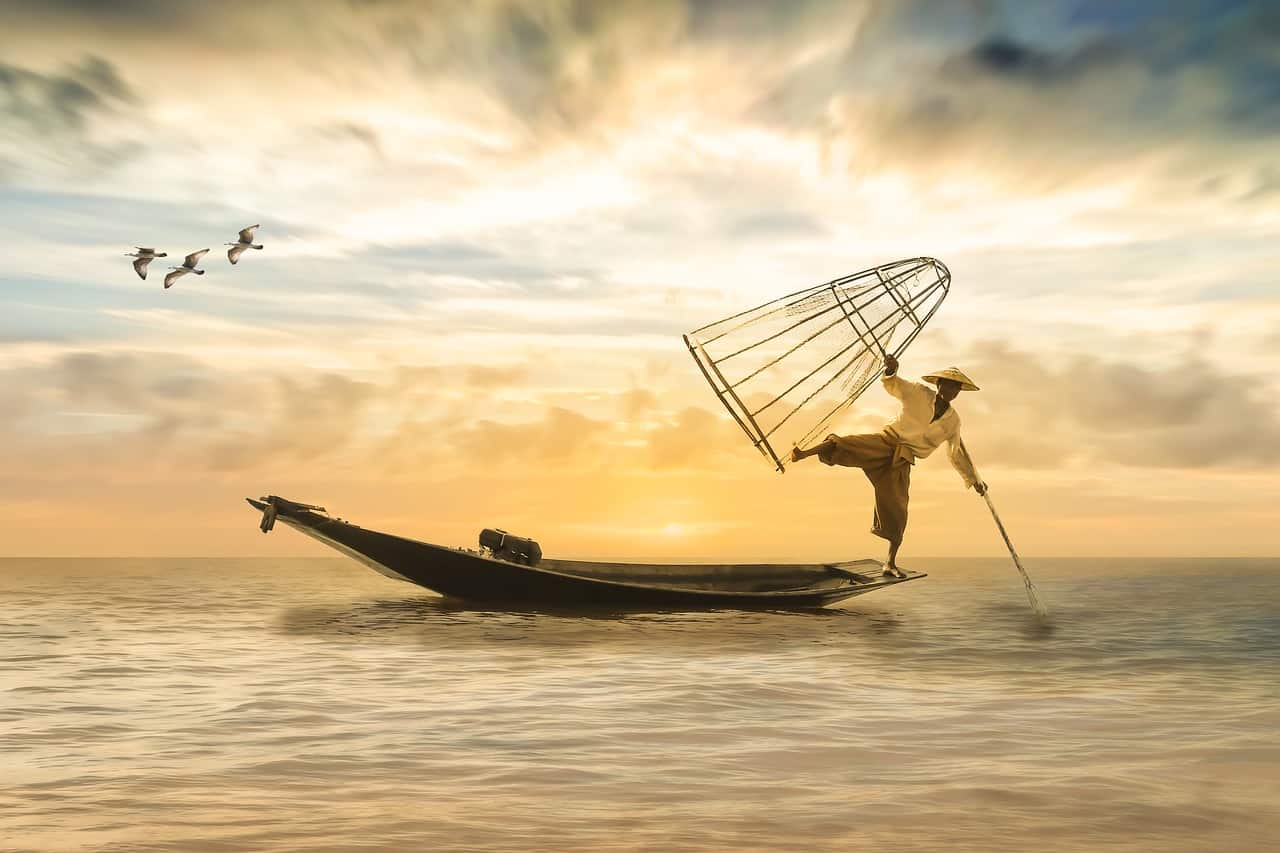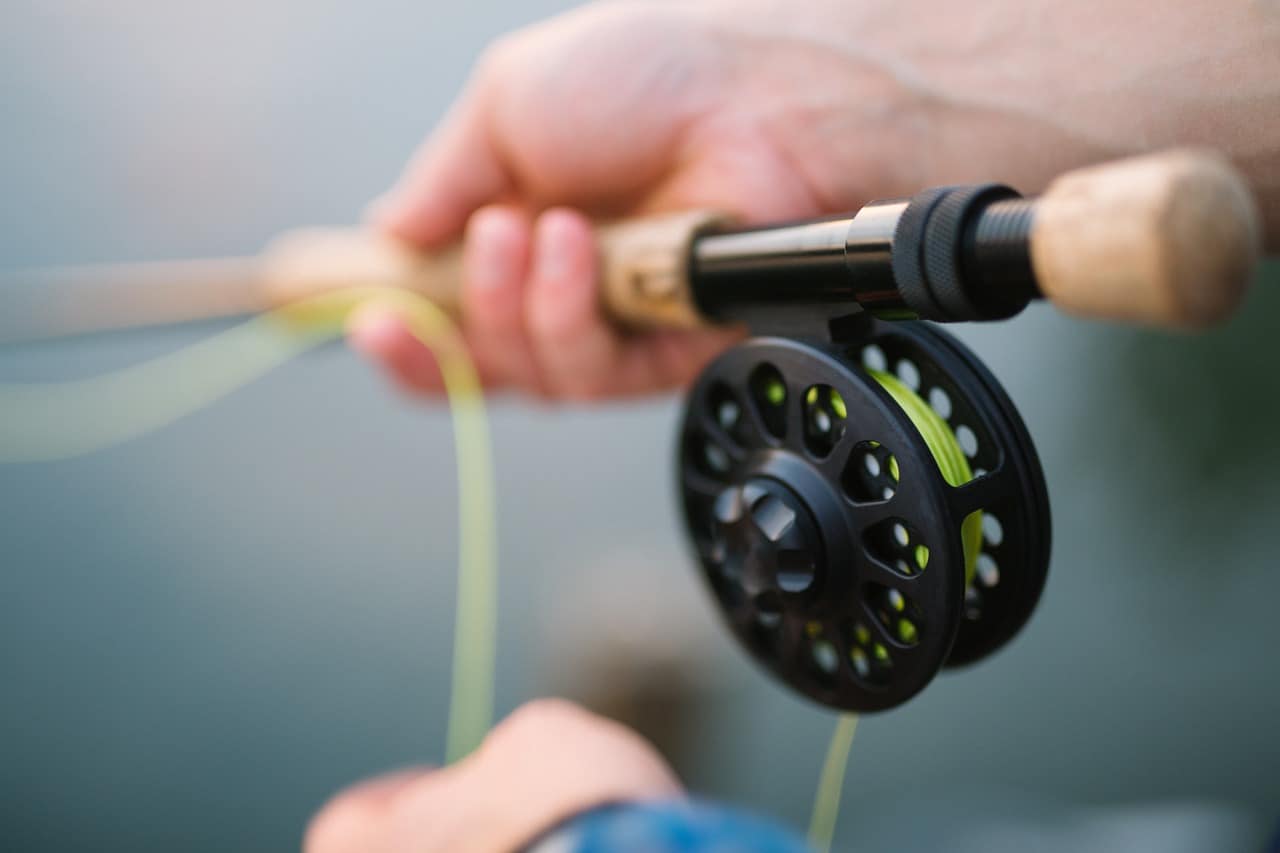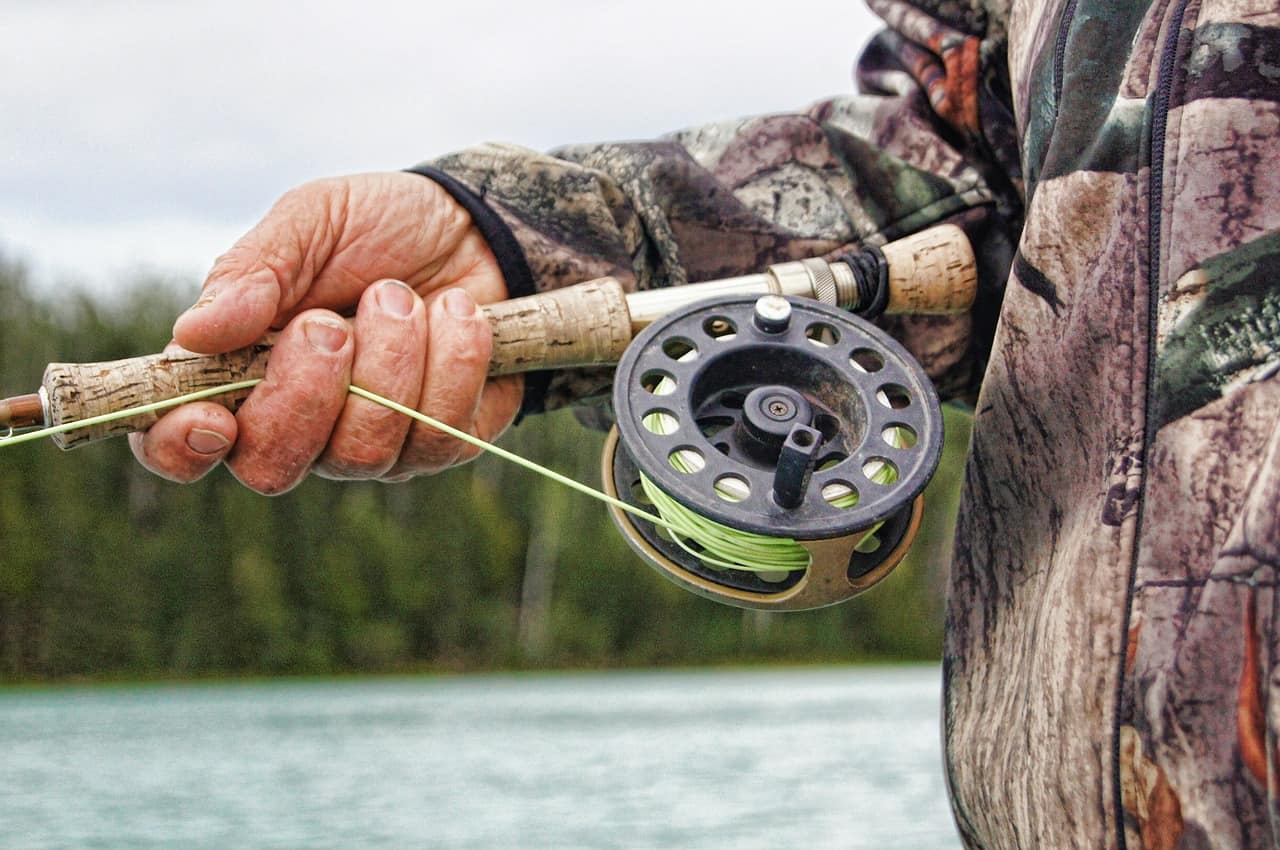Table of Contents
If you like to fish, chances are you’ve wondered how to make your fishing game better. Whether you’re a beginner with a lot to learn or a seasoned fisherman, there are always new techniques and fishing tips to try out. Maybe you fish for relaxation, or maybe you fish for sport. Perhaps it’s a way to spend time with friends and family or a way to get a fresh meal. Whatever the reason you take to the water, fishing is one of the world’s oldest and most beloved pastimes. While it may be old, that doesn’t mean there’s nothing new to learn about the activity. Wherever you are on your fisherman’s journey, the following 15 fishing tips are ones you need to try out as soon as possible.
*This post may contain affiliate links. As an Amazon Associate we earn from qualifying purchases.
A Brief History of Fishing
Image via: Pixabay
Fishing has been a prominent part of human history far before history was being recorded. Unearthed fish fossils suggest that Homo habilis and then Homo erectus were the first fishermen dating 500,000 years ago. Early humans most likely caught fish with their hands, but the use of rudimentary tools for fishing is widely speculated. It seems that it was not until at least 3500 BCE that tools such as the spear, net, line, and rod appeared, all in Egypt. Archeological digs suggest that these tools and more became more accessible to people, this making fishing a common source of food.
Unsurprisingly, fishing is believed to have been an important source of food in prehistory, but it did not become a commercial activity until Antiquity. Evidence has been found that deep-sea fishing first emerged in the 15th century due to the discovery of ancient fishing hooks and other tools. It did not become widely popular until the 19th century, however, when steam-powered boats arrived.
With larger, stronger boats available, more ground was able to be covered and larger nets were able to be cast out and pulled in. In the 18th century, recreational fishing and fly fishing was a pastime reserved for the wealthy but became more accessible as technology advanced.
Today, fishing is popular and widely practiced the world over. Used for recreation, sport, and a source of food, humans still engage in this ancient practice and there seems to be no end in sight.
If you’re interested in fishing, either as a beginner or someone with more intermediate experience, you are joining a long-held tradition of the human race. As time has gone on, we’ve only gotten better at fishing, and the following 15 fishing tips are here to prove it.
Fishing Tips for Beginners
Image via: Pixabay
Let’s start with some tips for beginners. Fishing can be tricky when you’re first starting out. Regardless of how simple it seems on TV or movies, fishing does take some time and skill, even when you’re just getting started. Luckily, we’ve got ten fishing tips that are perfect for beginners. Think of these tips as your fishing foundation. From here, you can build up your knowledge and skill over time.
1. Start with Research
Fishing may seem pretty straightforward but that doesn’t mean you immediately know all there is to know about it. Before you cast your first line, you should ensure that you not only know what you’re doing, but what you’re getting yourself into. Pick up a fishing book, check out some videos online, and read more articles like this one to learn about techniques, equipment, and more.
2. Learn and Implement the Basics
After you’ve done some reading and research, you can begin testing out some of the new fishing tips and skills you’ve learned. Certain basics to really familiarize yourself with are adding fish bait to hooks, casting your line, tying knots, and basic boat and water safety. These are also known as “pre-fishing skills” and will serve you well time and again.
3. Research Different Types of Equipment
Some fishing equipment is meant for more skilled fishermen and as a beginner, it’s important to know the difference between expert equipment and tools for beginners. For example, certain rods and reels are simpler for a beginner to cast while others are made for individuals with much more skill and experience. Before you purchase a pole and other fishing necessities, research which reels, lines, rods, and more are perfect for beginners.
4. Be Choosy about Your Bait
The type of bait you use has a huge impact on how well you fish. No, this doesn’t mean that bait is part of technique the same way a casting style is, but it does make a difference between whether or not you attract the fish you’re looking for Different fish are attracted by different bait, so it is important to be aware of what bait you’re using and what fish you’re trying to catch. For example, catfish respond best to bait made especially for them which may require a trip to a specialty store. Beam fish, on the other hand, like insects such as crickets which can be found easily while many other fish are partial to worms, cheese, and other bait types.
5. Have a Plan
Planning ahead is always a good rule of thumb. On a normal fishing trip, you’re going to need a lot more than just your fishing pole and some bait. You’re also going to need protective gear, food and drink for yourself, a way to keep time, and storage for the fish you catch. Before you start your fishing trip, you must have the following already figured out for optimal safety:
6. Dress for the Occasion
The right clothes are a must for a successful fishing trip. Primarily, you’re going to need boots. Since you’ll be on the water, boots are the best choice for if you need to get wet, muddy, or mossy. Layers are also a great idea as the weather can be unpredictable as the day progresses. A warm morning may turn into a cold afternoon and vice versa.
7. Be Mindful of Location and the Weather
Depending on the fish you want to catch and the type of fishing trip you’re planning to have, you have to think about location and weather. In general, a gloomy, overcast day is best for fishing, especially if you’re sensitive to the sun. Other times, a sunny day is ideal if you’re out with friends and family. Location and weather are important because both factors can influence your catch. Some fish are only in certain locations, while some weather conditions can make it more difficult to find what you’re looking for.
8. Practice Makes Perfect
This may seem like an obvious tip that works for life in general, but it’s just as relevant here. It primarily depends on how serious you are about fishing – if you’re doing it for fun, practice may not be that important. However, if you are fishing for sport or for food, you should make a point to practice casting, baiting, and reeling. When you have the techniques down, you stand a better chance of gaining a great catch.
9. Learn the Differences between Saltwater and Freshwater Fishing
Aside from the obvious difference between saltwater and freshwater, fishing in these water types actually differ on a few key points. For one, there are different species of fish in saltwater than there are in freshwater. If you’re looking for a certain type of fish, it may mean an entirely different day if that fish can’t be found in your local lake or pond. For another, freshwater locations will have creel limits. A creel limit is the amount of fish and/or the size of fish you’re legally allowed to remove from a lake, pond, or river per day.
With this in mind, it makes sense to save your serious fishing for the ocean (in designated areas, of course), and your recreational fishing for bodies of freshwater.
Saltwater Fishing Tips
When fishing in saltwater, you may do so from a pier, a boat on the open sea (deep sea fishing), a kayak, or in a bay. These different locations may have different fish, different rules, and different techniques. The following fishing tips should be useful no matter what body of saltwater you choose to fish in:
Freshwater Fishing Tips
Freshwater fishing can be a little tricky because of different factors like weather, water temperature, bait type, and more. Different bodies of freshwater have different rules, but the following tips are useful for lakes, rivers, and ponds:
- If fishing in a lake or a pond, map out the area – different fish hang out in different areasAlways use live bait in freshwaterBait such as worms, minnows, and softshell crabs will garner the best resultsLeeches and frogs are another bait option for larger fish, so choose your bait accordinglyWater temperature mattersYou have to fish deeper on warmer days because fish will avoid the heat and move to deeper, cooler waterDuring dusk and dawn, the shallows are the best places to fishAlways keep your hands clean to avoid adding extra salinity to a freshwater lake or pondLook for larger fish (like northern pike and largemouth bass) in weed bedsFish near sunken trees, branches, and man-made fish habitats as they act as little havens and hangouts for large groups of fish
10. Know the Law Beforehand
Finally, a large part of fishing is following the law of the land (er, sea). Laws are in place to keep fishing safe and fun for everyone as well as to protect the environment and wildlife. Different states have different rules for fishing, whether for sport, recreation, or food, and it is your responsibility to know what your state has to say about it. The consequences for breaking fishing laws can be pretty steep, so be sure to do your homework before you head out on the water.
All-Purpose Tips
Image via: Pixabay
Now that we’ve got the tips for beginners all squared away, we can move on to the all-purpose fishing tips. These tips are useful for everyone and anyone regardless of skill level and will help not only with the task of fishing itself but the responsibility that comes with being someone who fishes. Apply these tips to those above for the safest, most competent fishing experience possible.
5 All-Purpose Fishing Tips
1. Be Ready for Anything
A day on the water can be pretty unpredictable, which is why you must be prepared and ready for anything. Be sure to check out your boat’s engine, inspect all gear, and perform any necessary maintenance services well before you head out on the water. You should run the engine to make sure it is working well, check the battery and all important electronics, ensure that your reels are working smoothly, and confirm that all necessary tools are onboard and ready to go.In addition, make sure that you have food, water, medication, remedies for sea-sickness, and life jackets and other emergency gear. In short, you want to cover all your bases so that every time you head out on the water you know that you and your loved ones are safe. Even if it’s just a quick trip or you aren’t heading too far out from the shore, preparing yourself for all scenarios is the best thing you can do.
2. Glue Your Bait
This is a great fishing tip for beginners and seasoned fishermen. Sometimes you can lose a fish if the bait is not on the hook securely. Your prey may swim up, grab a tasty snack, and be on its way. Avoid this by gluing your bait to your hook. This is especially useful if you are fishing in rough waters where there is a heavy current, lots of vegetation, or you know the fish you’re after are rather strong. A dab of superglue on the hook will do it. Just be sure to let it dry before casting it into the water.
3. Pack Some Sharpies
Some fishermen find it useful to color-code their bait, reels, and other tools. Packing a pack of sharpies can help you mark up whatever you need, customize items that might be shared with friends (so you always know what’s yours), and more. Also, it always helps to have a heavy-duty writing tool in case of an emergency. Be sure to keep your markers in a safe, dry place so that you can grab them when you need them without them getting ruined by the elements.
4. Let Your Bait Hit the Bottom
A great technique that lures in the fish is allowing your bait to hit the bottom. Allow your line to fall limp before your reel it in. Once the line has gone limp, you know it’s resting where you want it to. From here, slowly reel the line back in add gentle movements as you go. These subtle movements will mimic live bait better, attracting more fish.
5. Clean Up After Yourself
Finally, the best tip we can give fishers of all ages, stages, and skill levels is to clean up after yourself. Be sure that everything you brought out on the water goes home with you. Whether this is a gum wrapper, a cigarette butt, soda cans, water bottles, food or bait containers, packaging for hooks and other tools – whatever. Take a mental inventory before you hit the water to ensure you know what is with you at the start. This way you already have an idea of what could go missing and are more likely to keep an eye out for items likely to be lost or forgotten.What’s more, cleaning up after yourself shows that you respect nature, the areas you fish in, and the people who will fish after you. Be kind and intentional about these natural habitats by doing your part. To help, make sure you bring designated containers, bags, and other receptacles for trash, items that need to be stored for next time, and items that need to be cleaned or repaired.
Conclusion
We hope our 15 fishing tips are helpful, insightful, and even a little exciting. Becoming a better fisherman means a better time next time you’re out on the water, and these 15 tips cover everything you need to improve yourself. Whether you try just a few of these tips or implement all of them, we hope that your next fishing trip is one to remember. Don’t forget: respect the environment, be responsible, and stay safe out there. Happy fishing!




